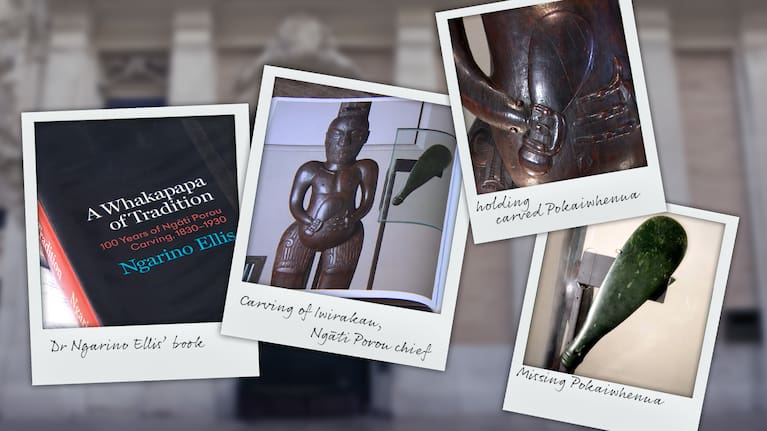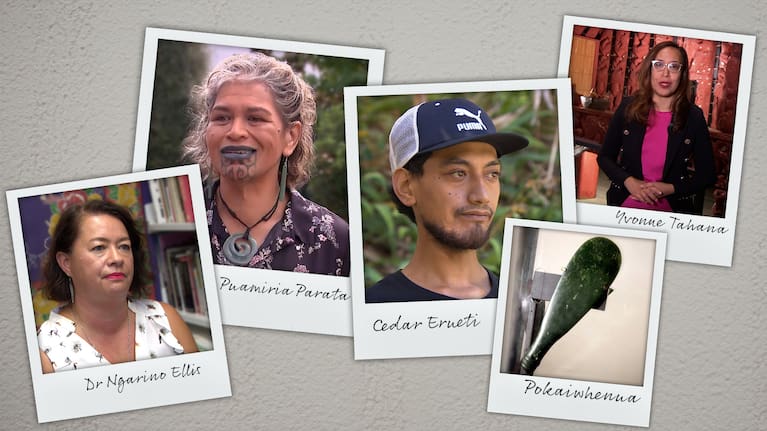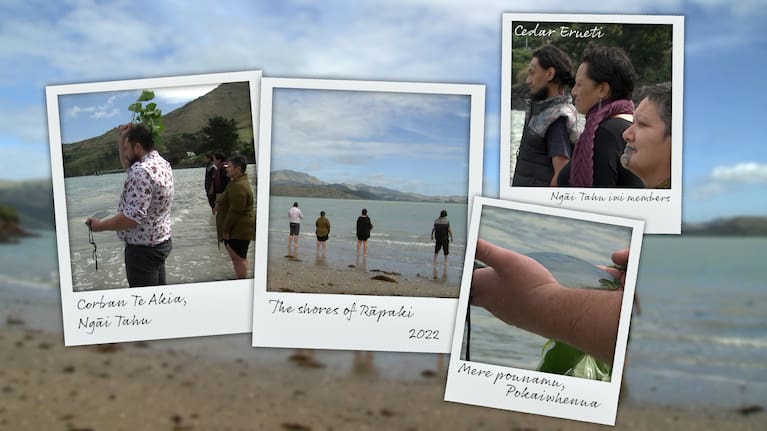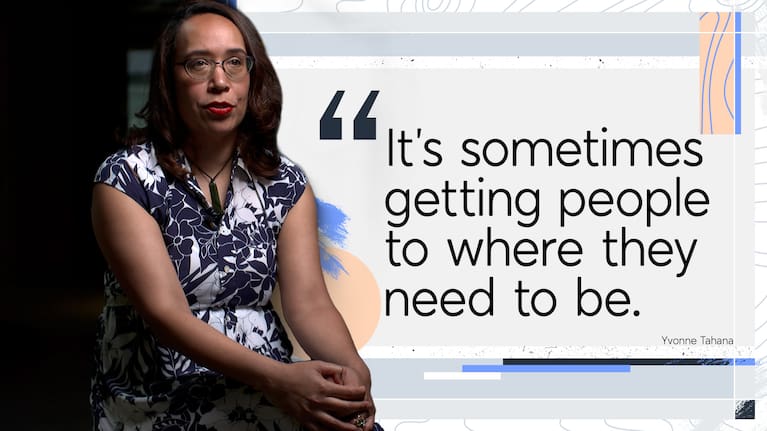It all started with a dreadlocked rasta wig and a blow torch on the steps of Auckland Museum in March 2019.
That's when the now infamous mere pounamu was stolen, but it was a heist gone wrong. A different mere than was intended was taken, which sparked a detective case with Yvonne Tahana as TVNZ's Māori Affairs Correspondent in the middle.
In her own words, Yvonne Tahana describes the three-year-long journey that saw the mere pounamu safely back home in the most "Māori way possible".
"We just don't have those things happen in New Zealand very often, we have paintings stolen.
"So it kind of got the juices flowing. Where's he gone? Who's got him? Why did they take him?"
The detective case unfolds
After Pokaiwhenua (the mere pounamu) was taken from Auckland Museum, Yvonne Tahana went along to a Te Karere interview with art historian Dr Ngarino Ellis.
Ellis, a co-investigator on the Royal Marsden Fund project entitled Toi Te Mana: A History of Indigenous Art in Aotearoa New Zealand, had written a book that featured Pokaiwhenua.
“It almost seemed like the universe was sort of connecting little dots.”

After the interview, Tahana filed an article on the importance of the spiritual and physical ramifications those involved may face.
“"When tapu is broken there are physical repercussions. People get sick, people can die. Simple. And I know this for a fact..."
Galvanised by reading Yvonne's article, it wasn't long until a mystery young man reached out to Tahana for help.
This person was Cedar Erueti, and his stepping forward was key to unlocking the entire story, and their meeting would ignite Tahana's pivotal involvement in the safe return of the mere.
“He told me that he'd accidentally stolen the wrong one and that he was pretty sorry about that.”
Erueti was from the Ngāi Tahu iwi and had wanted to retrieve a Ngāi Tahu mere.
Pokaiwhenua is from another iwi, Ngāti Porou.
“It was a case of mistaken identity.”
The bump in the road
A year later, Covid-19 arrives on New Zealand's shores and plunges the nation into lockdown, grinding the official investigation to a halt.
But Tahana recalls that behind the scenes, "It was like there was a detective process going on by Ngāi Tahu aunties."
Ngāi Tahu's Puamiria Parata, dedicated to finding the taonga, sought out tips, at one point claiming "they were like a week behind it, almost caught up to it".
Fast forward to 2021 at Auckland's District Court, Erueti was found not guilty by reason of insanity.
"The judge was amazing, it felt like she was on his side to try and get him to help turn around his life."

The return of the taonga
It's now March 2022, three years after the mere pounamu had been stolen, and the court was told Erueti wished to return Pokaiwhenua.
"And I thought, 'oh, that's not going to happen'."
But as the events unfolded, Tahana became an integral player in seeing the safe return of the mere.
Cedar called her at work, and as she recalls, "he wants to give the mere back, but he wants me to help him do it".
"I didn't want to hold it. I didn't want him to give it back to me. I wanted him to give it back in a way that followed Ngāi Tahu tikanga."
Tahana flew to Christchurch, not knowing how things would pan out, but it all seemed to fall into place.
Deciding not to film the special moment, in front of iwi members, clinical supporters and his father, "[Erueti] pulled it out from behind his back and handed it over to his Aunty, his mother's sister. And he said, "Arohanui". He was sorry."
An art heist that became a journey of healing
Later that day, a cleansing ritual took place, at Ngā Tahu's shoreline in Rāpaki.
Eureti stood shoulder-to-shoulder with iwi members, together with the mere, Pokaiwhenua.
"He's standing there, accepting responsibility, but also cleansed by his own waters.
"And that was the overwhelming wish from Ngāti Porou. They eventually saw a resolution, but they also wanted the best for the boy."

Doing the 'right thing'
Tahana at the time was TVNZ's Māori Affairs Correspondent, "That's the great thing about being a Māori journalist, you can see these processes play out, where it's not all retribution."

Three years after the mere dramatically disappeared, Tahana is in the South Island on the shores of Rāpaki.
"I put my feet in the water because you want to be cleansed in a story like this, you want to feel that you have done your best because we don't get stories like this very often."
In this meaningful installment of The Story I'll Never Forget, Tahana had to navigate the balance of, "how close do you get to a story?"
But on the shores of Rāpaki the answer came easy, "Sometimes doing the right thing is getting your feet wet. You know, That's it."
The Story I'll Never Forget is a fortnightly, digital-exclusive series by 1News, asking New Zealand's leading team of journalists about stories that imparted meaning and memories upon their lives.


















SHARE ME